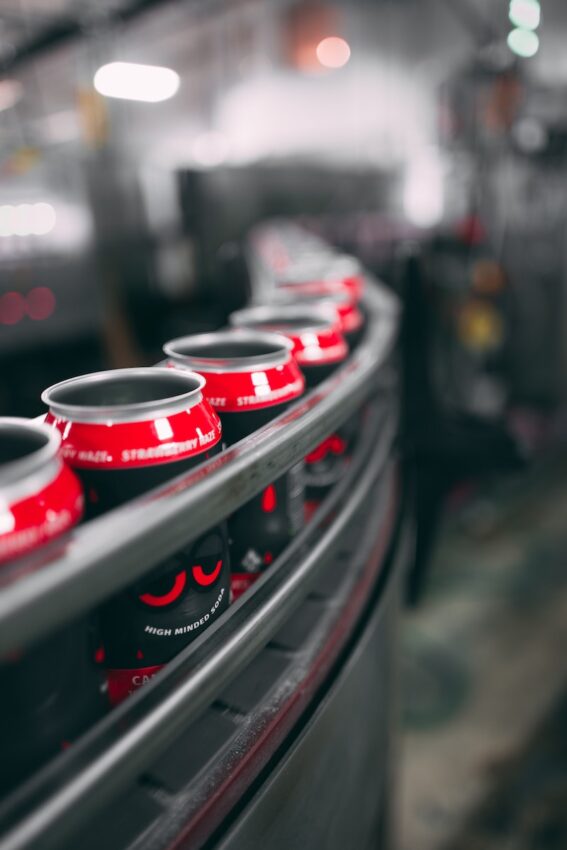The manufacturing industry has led to many jobs and the production of goods and services, bringing ease into our daily lives. Industrialisation is one of the reasons manufacturing exists today, as it paved the way for mass production and the use of machines in factories.
However, the manufacturing industry also has its downsides, such as environmental pollution and the displacement of traditional craftspeople.
You will find many manufacturing companies right around the world. Here is a list of the most common industries in the UK that you can view.
What is Industrialisation?
Industrialisation is the starting point of an economy as it relies on manufacturing to create products that can be sold in stores.
This process of industrialisation means it improves living standards and also allows for a higher income within the economy.
Different Types of Industrialisation
Here are the different types of industrialisation.
Manufacturing
This was the starting point of the invention of machines that were needed to produce goods.
Mining
Inventions during the 19th century were manufactured to help the mining industry. Some of these inventions included:
- The steam engine was designed to remove the water that was flooding coal mines.
- The first steam locomotive was used to transport ore from one mine to another.
- In 1867 dynamite was created to blow up any rocks that served as obstructions within the mining field.
Transportation
The steamboat was used to transport goods and people, and later it became a rivercraft. The steam locomotive was used to transport raw materials and finished goods.
Retail
The Sears Catalogue was one of the first to reach all citizens in America, listing the goods that were available for sale, and the first department store popped up in 1887 in Philadelphia.
How Industrialisation Impacts Society
Industrialisation helps move people stuck in rural areas from their small farm areas to cities where they can get jobs within the manufacturing industry whether they have the skills for it or not.
This helps the cities grow in numbers which leads to bigger stores opening and more people needing products and services, which creates a demand within the industry.
Difference between Industrial and Non-Industrial Industry
The industrial process includes methods such as assembly, sourcing, processing, repair and dismantling of a finished product. Non-industrial process refers to a wide range of retail land use for business of entertainment, neighbourhoods and even parking lots.
Why Manufacturing Matters
Manufacturing is an essential societal factor as it has been the backbone of economic development. Every country has manufacturing warehouses that manufacture products sold, strengthening the economy.
Their sole purpose is to convert raw materials into finished products bought as services or products. They also help eradicate poverty and increase job vacancies as people are trained to work in manufacturing plants and mass produce items that will be sold in shops, creating secondary jobs.
Manufacturing has a lot of pros and serves an important purpose within the economy, as without it, no products will be made available for people to use.
Importance of Manufacturing
Here is a list of the importance of manufacturing:
- Manufacturing leads innovation
- Manufacturing drives product growth.
- Manufacturing also aids in modernising agriculture and reduces people’s significant reliance on agriculture by giving jobs in secondary and tertiary job industries.
- Manufacturing also helps with services.
The Manufacturing vs Services Industry
A service can be described as a deed or action used to fulfil a demand or need, whereas manufacturing takes raw materials and makes them into finished goods.
The similarities between Manufacturing and Services include the following.
- Both industries need hard labour to get the job done.
- They also have huge marketing potential within both industries.
- They can plan and match supply and demand from both industries.
- Each provides customers with something (goods or services).
The differences between manufacturing and services include:
- Manufacturing has a physical, tangible product, whereas services offer an intangible product.
- Manufacturing allows for output inventories where the services industries do not.
- Manufacturing has a slower response time for customers, whereas service industries have a shorter and quicker response time.
- Manufacturing also has low customer contact, whereas services have high customer contact.
- Manufacturing needs a more extensive facility, whereas services can do with a smaller business space.
Conclusion
Manufacturing is the root of industrialisation and has paved the way for a modern world.
Keeping money flowing into the economy, especially with foreign trades and currencies is why manufacturing matters and drives the economy in any country forward.
If the manufacturing process stops within an industry, thousands of people will lose their jobs which will cripple the economy. Technology and manufacturing can allow companies to make more than one product or provide more than one service.



